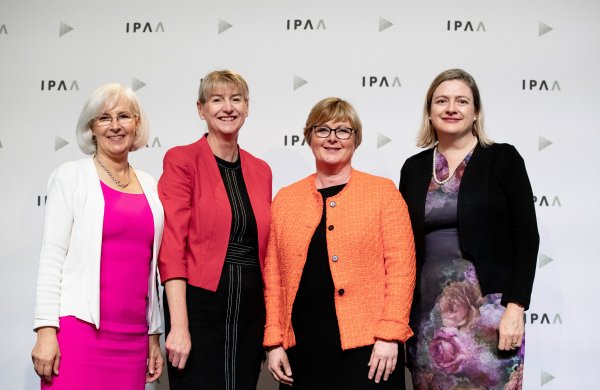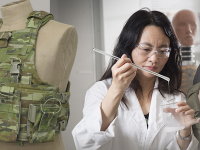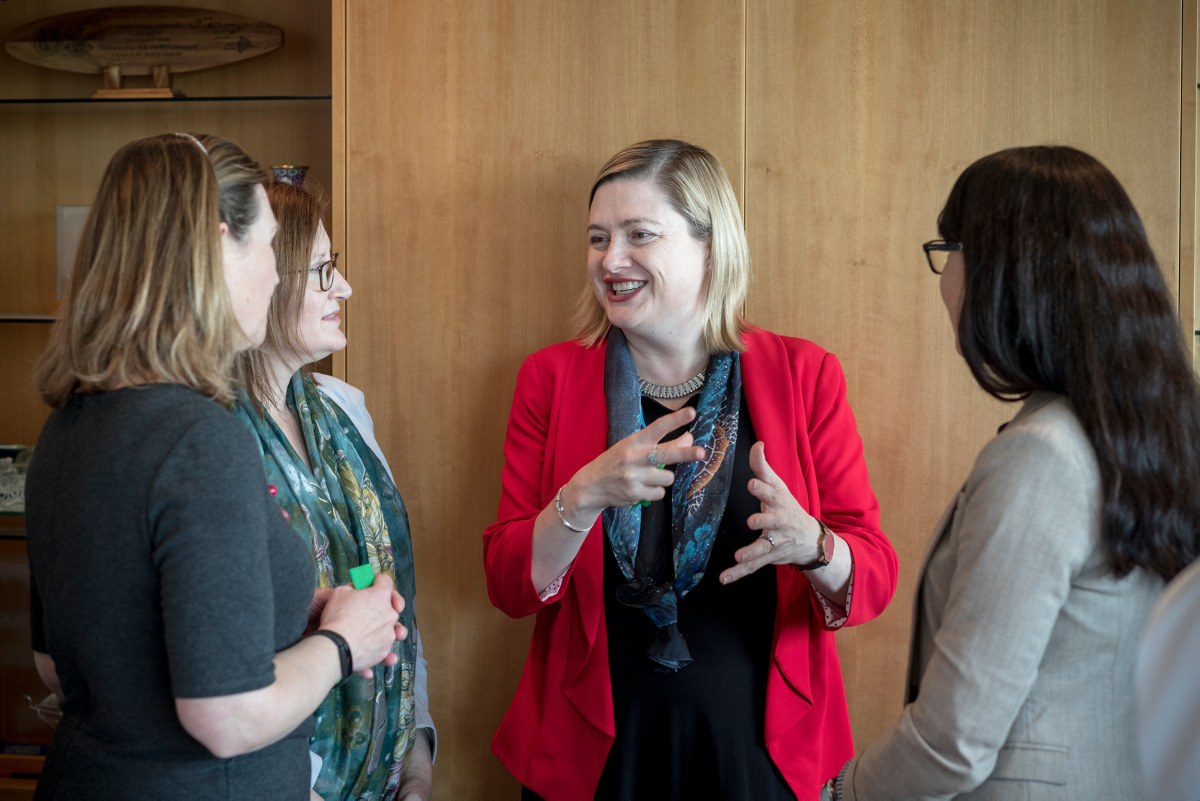In the lead-up to International Women’s Day on 8 March, we have much to celebrate. Women hold positions of high office around the world and head up some of our largest corporations.
Here in Australia, in what may typically have been regarded as strictly a male domain – Defence – we have a female Minister for Defence, a female Minister for Defence Industry and a female Chief Defence Scientist.

Women in Defence: Rebecca Skinner, Justine Greig, Linda Reynolds and Professor Tanya Monro.
Gender equity – done and dusted? I think not.
While these achievements are to be applauded, the time for real celebration is when such appointments are no longer remarkable.
I recently had the opportunity to attend the Catalysing Gender Equity conference in Adelaide.
Representatives from across education, research, industry and government gathered to discuss actions and foster collaboration to achieve gender equity. The drive, the energy and the commitment for change was palpable, and it was clear to me that there is now broad recognition that gender equity is a business imperative, not just a fairness issue.
It was clear to me that … we require fundamental social and cultural change to achieve true gender equity.
It was also clear to me that while we may have achieved a number of isolated successes with high-level female appointments, we require fundamental social and cultural change to achieve true gender equity.
 Nowhere is this more true than in the fields of science, technology, engineering and mathematics (STEM). The statistics speak for themselves:
Nowhere is this more true than in the fields of science, technology, engineering and mathematics (STEM). The statistics speak for themselves:
Women comprise 46% of the working population, and yet represent only 16% of the STEM workforce.
At a time when 75% of the fastest growing occupations require STEM skills and knowledge, women represent only 20% of students completing a tertiary STEM education.
Women in STEM is an issue that is particularly close to my heart and something that Defence as an organisation is working to address. It’s a capability issue.
As Chief Defence Scientist, this is an issue that is particularly close to my heart and something that Defence as an organisation is working to address. For Defence, it’s a capability issue.
To ensure Australia can meet the Defence and national security challenges of today and the future, it’s critical that we build a world-leading STEM-capable workforce. This will only be achieved by increasing the depth and diversity of the talent pool, and increasing the participation rate of women is critical to achieving that.
However, as the data from the Department of Industry, Science, Energy and Resources suggests, girls and women are poorly represented in STEM. The reasons for this are many and complex. Factors such as bias and stereotyping, career insecurity, a lack of flexible work arrangements, and lack of female role models have been demonstrated to greatly influence girls and women’s decisions to enter and remain in STEM education and careers.
 Role models are particularly critical. We need to have senior leaders celebrating women’s achievements.
Role models are particularly critical. We need to have senior leaders celebrating women’s achievements.
As a student, I did not have a female tutor or supervisor throughout my studies, and I know that was not unusual. While today, there are more women professors, we need to get to a point where this is the norm.
Defence recognises that it has a critical role to play in shaping the conversation and policy around STEM at a national level.
As a significant employer of STEM skills, Defence recognises that it has a critical role to play in shaping the conversation and policy around STEM at a national level.
Although the participation rates of women in Defence STEM occupations have been slowly increasing through our participation in programs such as ‘Male Champions for Change’ and ‘Science in Australia Gender Equity’, it is clear that we need a systematic and comprehensive approach to increasing the depth and diversity of the talent pool.

Defence Academy graduation, 2009
Defence was recently recognised for its commitment to gender equity, receiving the Athena SWAN Bronze Award which recognises organisations that are committed to advancing the careers of women in Science, Technology, Engineering, Mathematics and Medicine (STEMM) disciplines. Defence has also recently become an organisational Champion of the Women in STEM Decadal Plan.
While these are significant achievements, it marks only the start of our journey; a journey that will only end when women have the same opportunities as men in our workplace; when females have equal representation at senior levels of our organisations; when part-time and flexible working arrangements are normalised and accessed by all, regardless of gender; when we have recruitment processes that account for unconscious bias; when it’s no longer remarkable that a woman is the Chief Defence Scientist.




